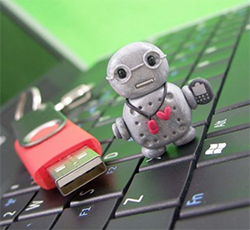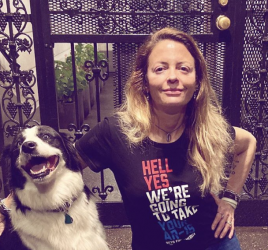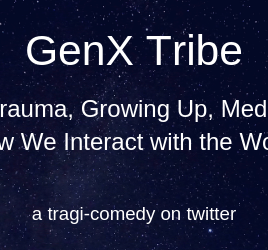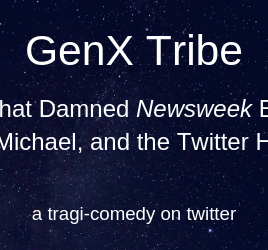The People We Wanted to Be
A decade has passed since that awful day on September 11, 2001. In terms of your memory, that’s a long time. The major moments tend to stick, but the bits and pieces of it all flitter away into the mind, gone from most purposeful thought.
What it leaves, though, is a filtered version of the things that mattered that day—and the days after. Those moments and emotions that have stuck have become my defining view of that day’s events.
I am prone to disappearing. I find ways to sequester myself from the world, whether driving alone when I could take the train or locking my doors on the weekend and emerging again only when it’s time for work. I am, and have always been, a solitary creature. That’s not to suggest that I don’t love people. In fact (and surprisingly), I have a great passion of them.
Many times, I just find all of the emotion too much to handle. I get overloaded with expectations, with disappointments, with joys. To survive, I need solitude to recharge and reboot.
In those terrible hours and days and weeks after 9/11, I remember not wanting that solitude. I remember looking around at the faces in the offices of Wired.com, professionals who were trying to find a way to make our stories make a difference from 3,000 miles away, and wanting to stay with everyone. On that awful day, people lingered about, not wanting to go home. I ended up sitting in a bar with my editor, one with whom I had a terrible relationship, and just processing through what we had seen. There were few words. Just silent drinking.
I drove home that day—the last time I would drive for a week—and did something I’d never done. I sat outside. I lived on University Avenue in Berkeley behind a full contact massage parlor (we dubbed it the “rub and tug”) and foot traffic was rare. That evening, though, people were out. Nobody wanted to sit inside. Nobody wanted to be alone.
For a short time—and I couldn’t tell you how long because I don’t remember this happening any more than I remember it not happening—we spent quite a bit of time hugging each other. It was okay to hug strangers, people on public transit system, people who were just sitting in public.
The memories that stick in my head a decade later aren’t feelings of terror or hatred or fear. Those have faded as they must if a people are going to continue into the long, bitter night of life.
Instead, I carry with me those warm, rooted feelings of humanity that bubbled to the surface. When you saw a fellow human crying, you walked over and laid a hand on their back. You made eye contact with your fellow commuters and smiled. Sometimes you reached out a hand and just held it for a second, an act of compassion and sharing.
You hugged people. Any people. All people.
Much of life in those days was done without words. There was no need for them. The eyes, the body language, the tears all told the momentary story of the people around you.
Many times during those raw days, I commented to those around me that I wished we lived in a world where those things just happened instead of happening after the awful events of 9/11.
No American will ever forget the events of that awful day. For me, though, I’ll never forget who we became in the hours and days and weeks after. For a brief time, we became the people we wanted to be. We were filled with compassion and gratitude Our emotions and our humanity were laid open for everyone, and everyone understood the awesome responsibility of handling someone’s humanity.
Today we remember the 3,217 people who lost their lives on that day, but I also choose to remember the love and compassion and humanity that radiated out afterwards.



